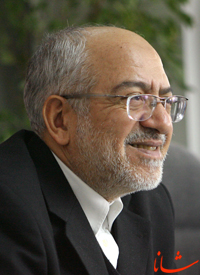Mohammad-Reza Nematzadeh made the statement in the “Special Talk” of state television Channel 2.
The deputy minister, however, said, “To put the plan into action, we will wait until all receive their fuel smart cards.”
The ranking official added the main aim behind the fuel smart card plan was to oversee and manage consumption scientifically, to regulate fuel supply in the country, and to gather information about fuel consumers.
“Based on Paragraph 9 of Note 13 of Budget Law, the government is duty-bound to draw up the gasoline sales and supply plan,” recalled the NIORDC chief, adding gasoline would not be provided without smart card as of May 22.
He expressed hope that fuel smart card plan would not cause any problem for consumers except those who used a great volume of commodity.
Nematzadeh assured that taxis and pick-up trucks would be supplied with enough fuel.
“At present, 270 gas stations of the country are distributing gasoline with smart card,” he said.
The deputy minister added the country’s daily gasoline production would hit 126.053 million liters by 2011.
Nematzadeh said the plans on optimization and improvement of refining process and increase of refineries’ capacities would help achieve the objective.
"We have carried out comprehensive studies on refineries and have prepared a master plan for every refinery during the past two years," said Nematzadeh, adding, "Now, development plans and new refining patterns of all refineries are ready for being put into practice in the Fourth Development Plan."
He said the development plans of refineries aimed to improve manpower structure, economize refining operations, promote the quality of oil products according to the latest international standards, optimize refining model, reduce the production of low-value products such as furnace oil, boost the output of high-value products like gasoline, cut the consumption of energy and fuel, and improve the control systems.
Head of Planning and Budget Committee of Majlis (
Reza Abdollahi said the lawmakers attached great importance to the perfect enforcement of the law on gasoline rationing.
Fuel smart card project would become operational in
Abdolreza Amini told PIN the smart card system had been put into operation in some gas stations since few days ago in order to identify and remove the problems.
The number of smart card-equipped gas stations was growing gradually, said the official.
Amini pointed to massive dissemination of information about the use of smart card, adding the general public would get further information in the coming days.
“Fuel smart card system is completely different from Shetab banking network,” underlined the official, adding, “Shetab network works online and therefore the emergence of problems while receiving data is a real possibility, but smart card system operates offline and there is no interruption in its system as it occurs in Shetab network.”
Last March, the Majlis approved that the government could sell rationed gasoline at 1,000 rials (less than 11 cents) per liter through smart cards. The lawmakers also authorized the cabinet to determine the price of gasoline sold in excess of the rationed quota.


Your Comment